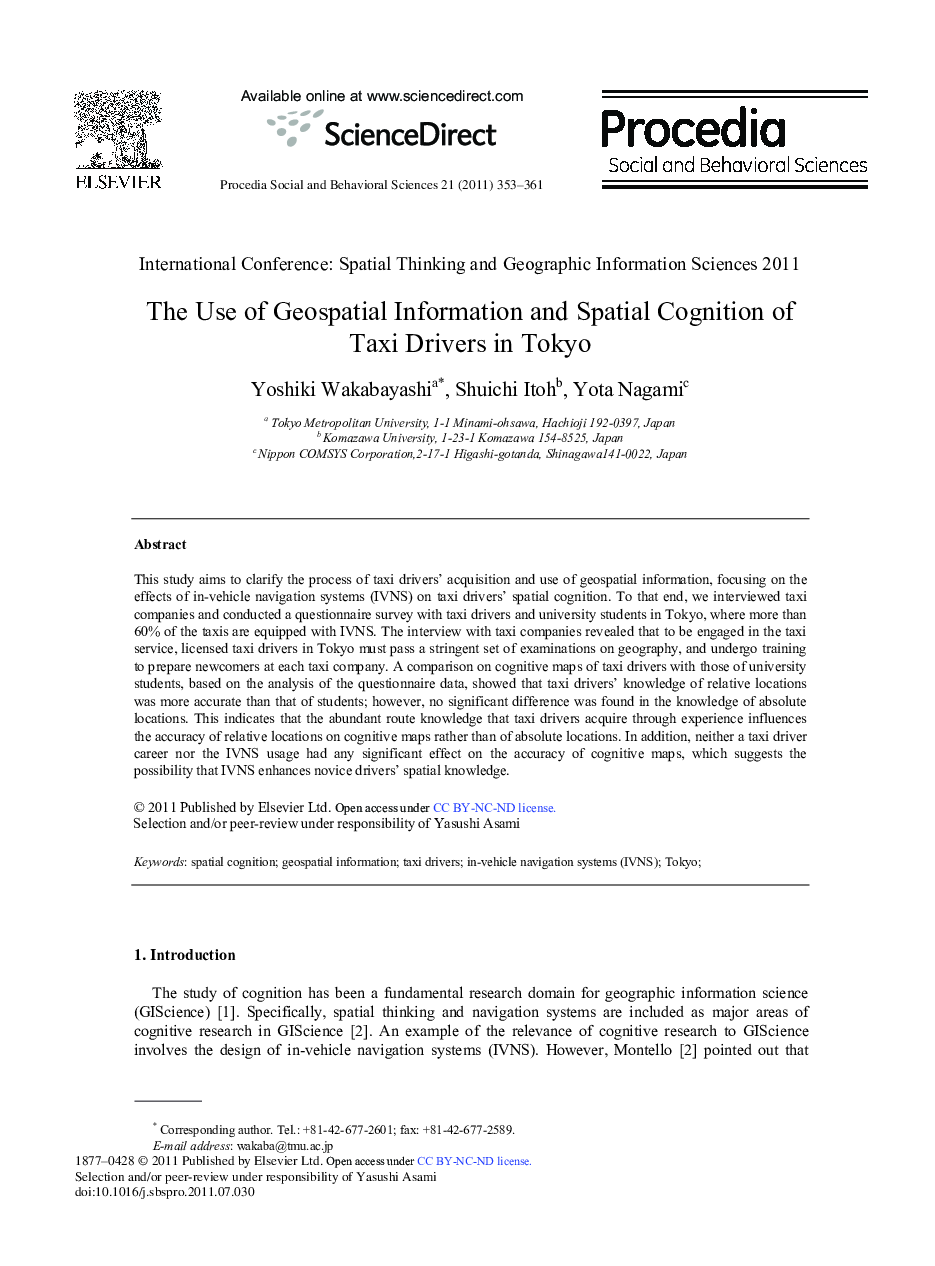| Article ID | Journal | Published Year | Pages | File Type |
|---|---|---|---|---|
| 1123963 | Procedia - Social and Behavioral Sciences | 2011 | 9 Pages |
This study aims to clarify the process of taxi drivers’ acquisition and use of geospatial information, focusing on the effects of in-vehicle navigation systems (IVNS) on taxi drivers’ spatial cognition. To that end, we interviewed taxi companies and conducted a questionnaire survey with taxi drivers and university students in Tokyo, where more than 60% of the taxis are equipped with IVNS. The interview with taxi companies revealed that to be engaged in the taxi service, licensed taxi drivers in Tokyo must pass a stringent set of examinations on geography, and undergo training to prepare newcomers at each taxi company. A comparison on cognitive maps of taxi drivers with those of university students, based on the analysis of the questionnaire data, showed that taxi drivers’ knowledge of relative locations was more accurate than that of students; however, no significant difference was found in the knowledge of absolute locations. This indicates that the abundant route knowledge that taxi drivers acquire through experience influences the accuracy of relative locations on cognitive maps rather than of absolute locations. In addition, neither a taxi driver career nor the IVNS usage had any significant effect on the accuracy of cognitive maps, which suggests the possibility that IVNS enhances novice drivers’ spatial knowledge.
